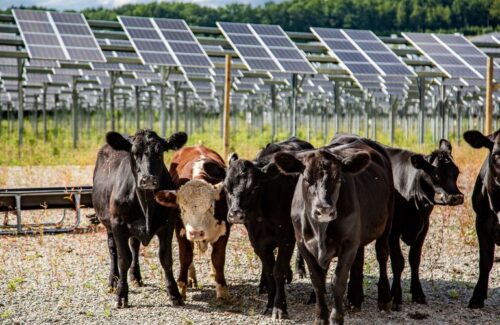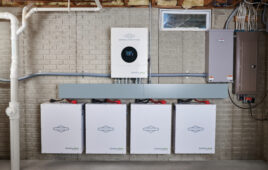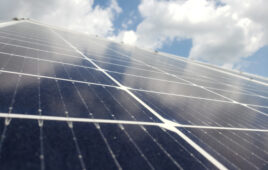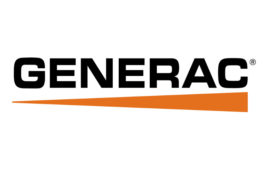
The DOE is looking to develop best practices for eco-friendly solar siting by funding new research.
FEMA proposes change to building code that could increase cost of ground-mounted solar
Washington, D.C.
The Federal Emergency Management Agency has proposed raising the risk category for ground-mounted solar from low-hazard risk category I to category IV, which could increase the material makeup of solar racking and modules and raise costs substantially. SEIA and over 300 clean energy companies are pushing for a compromise to classify ground-mounted solar as risk category II.
Treasury seeks public input on clean energy provisions in the IRA
Washington, D.C.
The U.S. Dept. of the Treasury and the Internal Revenue Service in early October began seeking public input on the numerous climate and clean energy incentives in the Inflation Reduction Act. The department also started convening stakeholder roundtables to hear from a “wide range of voices.”
DOE calls for increased cybersecurity measures in preparation for rapid distributed energy growth
Washington, D.C.
The U.S. Dept. of Energy recently released a long-term evaluation and strategic look forward at cybersecurity considerations associated with distributed energy resources like solar power. The authors recommend minimum security requirements and governance to protect these resources from hackers, especially as the industry grows over the next decade.
DOE invests in research to minimize wildlife impacts on large solar sites
Washington, D.C.
The U.S. Dept. of Energy announced $14 million in funding for researchers to study the ways solar infrastructure interacts with local wildlife and ecosystems. The department hopes this research will help the industry develop best practices around responsible solar site development.
California Energy Commission to require more utility transparency into customer electricity rates
Sacramento, California
The California Energy Commission adopted updates to the state’s standards that will give consumers more timely and accurate information on electricity costs to help them better manage energy use. By April 2023, the state’s large IOUs will be required to publish an hourly rate database.
Georgia Power Company proposes new $200 rooftop solar interconnection fee
Atlanta, Georgia
Georgia Power Company has proposed a rate hike for all customers and a new $200 interconnection fee for rooftop solar customers. SEIA is asking the Georgia Public Service Commission to reject these changes and provide more oversight of rate structures.





Those investors in other forms of energy are threaten by the growth of solar. They will do what they can against solar.
It is like if a negative thing comes out on electric cars it has to be spread and repeat many.
As if there are many things wrong.
Those with big investment will do what they can to stop or slow down progress.
This photo shows cattle near a ground-mounted installation, although cattle have been deemed safe to graze without harming modules. Please explain.
“…raising the risk category for ground-mounted solar from low-hazard risk category I to category IV, which could increase the material makeup of solar racking and modules and raise costs substantially.”
Proposing and (doing) can often be two different things. Regulatory “exuberance” by bloated bureaucracies is beginning to put the brakes on accepting and implementing solar PV for individual use. It seems the basic “attack” on ground mount in the name of “safety” is another unecessary knee jerk reaction to weather events of the past destroying large solar PV installations. Some early failures in solar PV farms in Australia due to wind load design failures have had companies scrambling to redesign their product and incorporate better metallurgy and panel mounting points in new mounting technology. The government is behind and the solar PV industry as a whole is moving forward and are bringing new products out to solve problems exposed by failures in the field sites already installed. I smell the influence of insurance companies pushing for standards that actuarially benefit the company over the customer every time.